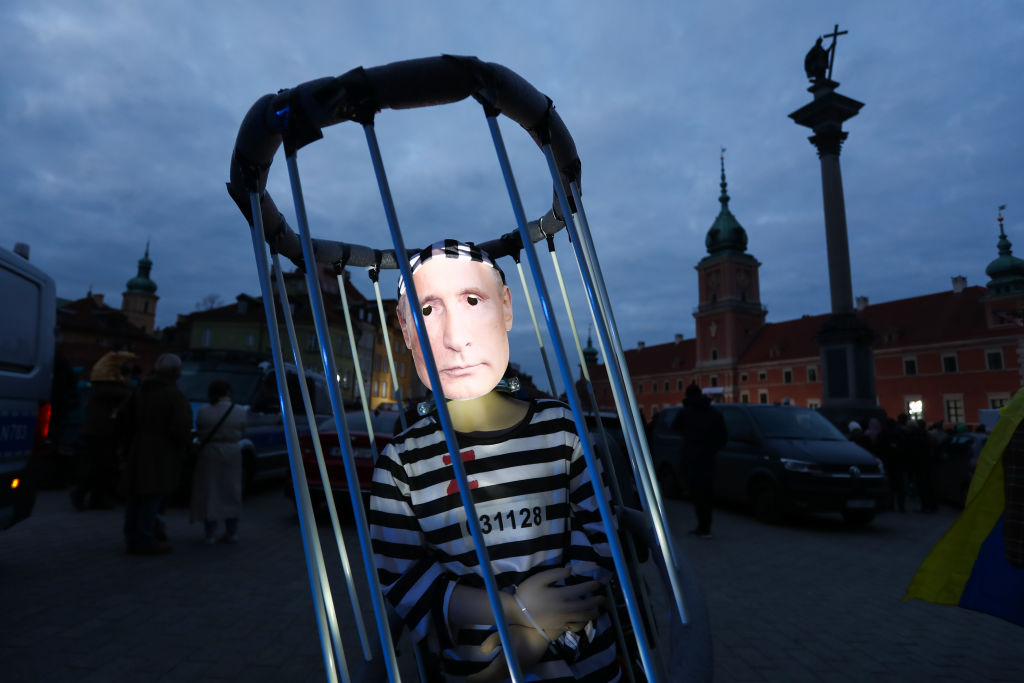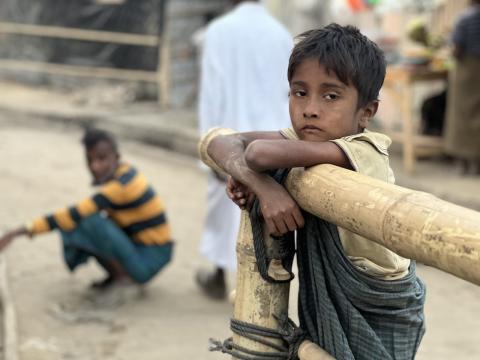The legal classification of an estimated 20,000 foreign fighters from 52 countries participating directly in the Ukraine hostilities is not just a question of semantics. Misclassification can have profound life-or-death implications, as several foreign fighters enlisted in the Ukrainian International Legion of Territorial Defence discovered.
Ten foreign fighters from the United Kingdom, Sweden, Morocco, the United States and Croatia, whom Russian authorities controversially predetermined to be mercenaries, were taken captive in Mariupol, summarily stripped of all legitimate combatant rights and international humanitarian law protections and subjected to show-trials and inhumane treatment in the self-proclaimed Donetsk People’s Republic. These sorts of grave violations of international humanitarian law merit urgent calls for accountability from the international community.
The classification of active participants in conflict zones, whether as combatants, or mercenaries, significantly influences their legal protections under international humanitarian law should they fall into enemy hands. Combatants, authorised by their state to participate directly in hostilities, enjoy immunity from prosecution for acts of war (POW), provided they adhere to the laws of war, and are entitled to prisoner of war protections upon capture.
By contrast, mercenaries, who are primarily motivated by private gain and not officially affiliated to the state’s armed forces, are exposed to prosecution for their mere participation in the hostilities and are denied POW privileges. It is this denial of combatant immunity and POW privileges that motivates Russia’s misclassification of these foreign fighters as mercenaries.
Under duress and without mounting any defence, these foreign fighters summarily plead guilty before a hastily constituted court handed down death sentences.
Research I have published this month into the legal requirements for mercenary status reveals that this classification is deeply flawed. Russia breached its international humanitarian law obligations on several fronts.
First, as a state party to the third Geneva Convention, Russia is obligated to only hand over detainees to other states that are also party to the convention. The Donetsk People’s Republic is not a state, nor is it party to the Geneva Convention.
Second, as legitimate combatants under international humanitarian law, these foreign fighters should have been afforded combatant immunity from prosecution, full POW privileges, and at the very least the fundamental due process fair trial guarantees recognised by all states. Instead, they were denied access to an independent and impartial tribunal, deprived of access to competent legal representatives and exposed to torture and inhumane treatment. Under duress and without mounting any defence, these foreign fighters summarily plead guilty before a hastily constituted court handed down death sentences.
These sort of dire consequences that flow from the blatant violation of international humanitarian law classifications and the denial of universally recognised fair trial guarantees underscore the urgent need for this sort of focused legal scrutiny. This research should inform legal arguments, influence policy decisions, trigger international condemnation and political intervention, and advocate for accountability and adherence to international humanitarian law.

Accountability might come through the International Criminal Court (ICC). While Russia has not ratified the Rome Statute, which established the ICC, Ukraine made a declaration in November 2013 accepting the ICC’s jurisdiction. The war crimes perpetrated against these foreign fighters in the Donetsk People’s Republic, which is internationally recognised as part of Ukraine, would fall squarely within the ICC’s jurisdiction.
The ICC’s issuance of arrest warrants for Russian President Vladimir Putin and other high-level Russian officials involved in other war crimes committed within Ukraine’s territory already serves as a significant first step, and this research should inform the issuance of future warrants.
Several countries, including Estonia, Germany and Sweden, have already declared their intentions to prosecute war crimes perpetrated during the Russian invasion of Ukraine in their domestic courts. This option is open to any states under the principal of universal jurisdiction regardless of the crime’s location, or nationality of the victims or perpetrators. A collective effort by the international community to investigate, prosecute or extradite the perpetrators of these grave war crimes and acts of torture will underscore a universal commitment to the enforcement of international humanitarian law.
In conclusion, the misclassification of Ukraine’s foreign fighters as mercenaries has deprived them of their combatant immunity and POW privileges, and constituted a breach of the foundational tenets of international humanitarian law. Through critical legal research, international advocacy, and the enforcement via universal jurisdiction, accountability for grave breaches of international law can be restored, ensuring that the rule of law prevails especially in the most challenging circumstances of war.

